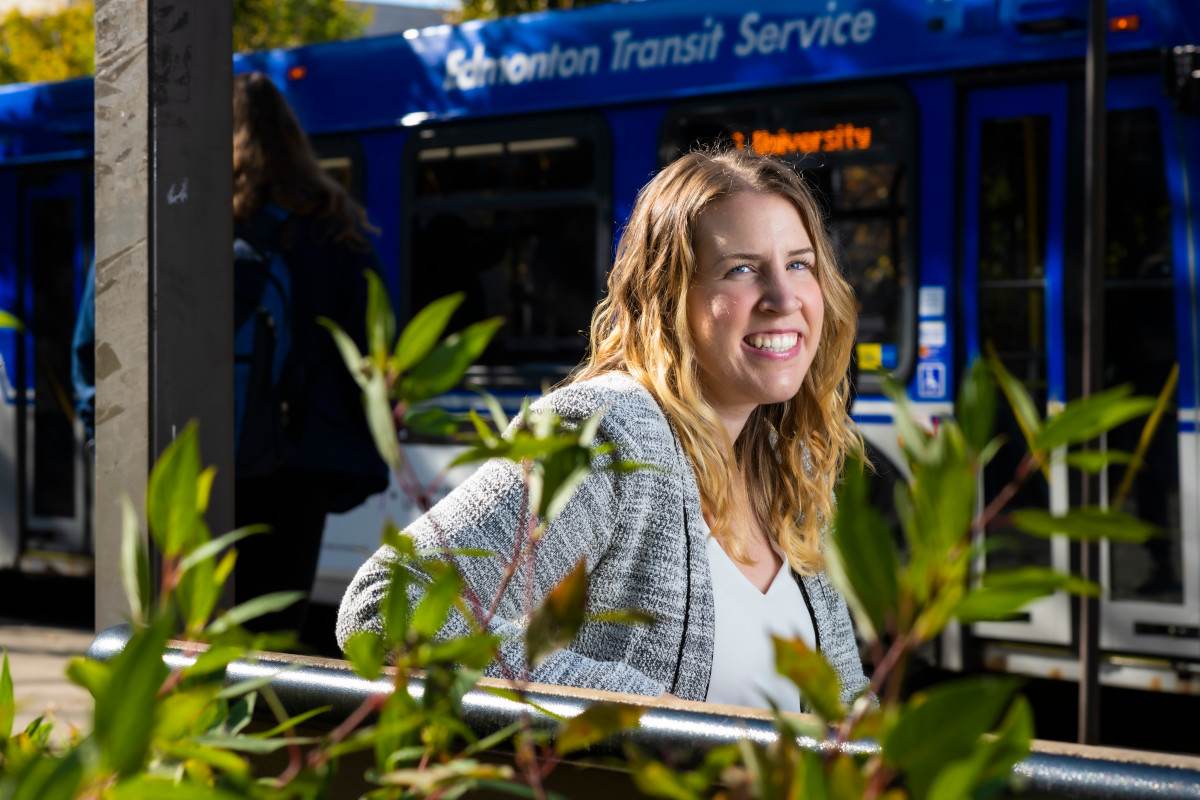
Assistant Professor Emily Grise, pictured at a transit stop at the University of Alberta before the COVID-19 pandemic. Photo credit: John Ulan
COVID-19 has disrupted our lives in many ways—and public transportation is no exception, with ridership dropping significantly. As we plan for a future beyond COVID-19, a team of researchers led by a University of Alberta scientist are investigating how to build confidence in public transit with a new survey focused on Metro Vancouver.
“COVID-19 has resulted in devastating decreases in public transit usage,” said Emily Grise, team lead and assistant professor in the Department of Earth and Atmospheric Sciences. “The requirements of social distancing, as well as people refraining from using a transport mode with a high turnover of users may lead to a long-term increase in motorized car use.”
The study, sponsored by TransLink, the public transit provider in Metro Vancouver, is conducting a survey to identify optimal policies that TransLink and regional stakeholders should prioritize in order to motivate continued transit usage among existing users and attract riders back to transit when the COVID-19 crisis ends.
“Public transit agencies in Canada, and internationally, have sustained dramatic declines in ridership during the pandemic and thus significant losses in fare revenue,” said Grise. “Many companies have considered how to bring employees back to work in the office while avoiding public transit—including employee car allowances, private bus services and opening satellite offices closer to where workers live.”
Without specific post-COVID-19 policy interventions, Grise explains, those changes are not likely to revert after the crisis—so it is critical for public transit authorities to gain an understanding of what users’ concerns are and how they can be overcome.
“Even a moderate shift from public to private transport carries the potential of triggering the vicious circle of the decline of public transit if the public transit supply or quality is cut, leading to an increase in road congestion, greenhouse gas emissions, and inequity. Thus, it is necessary to design policy interventions to counteract negative trends early on. Such policies must be designed with careful input from the transit users.”
The survey is open to transit riders in Metro Vancouver, and can be completed online until December 24, 2020. A second wave of the survey will be held in winter 2021 to gauge changing perceptions through the pandemic.
The study is being conducted with collaboration with Utrecht University, and supported by UAlberta graduate students Bogdan Kapatsila and Jordan Rea.